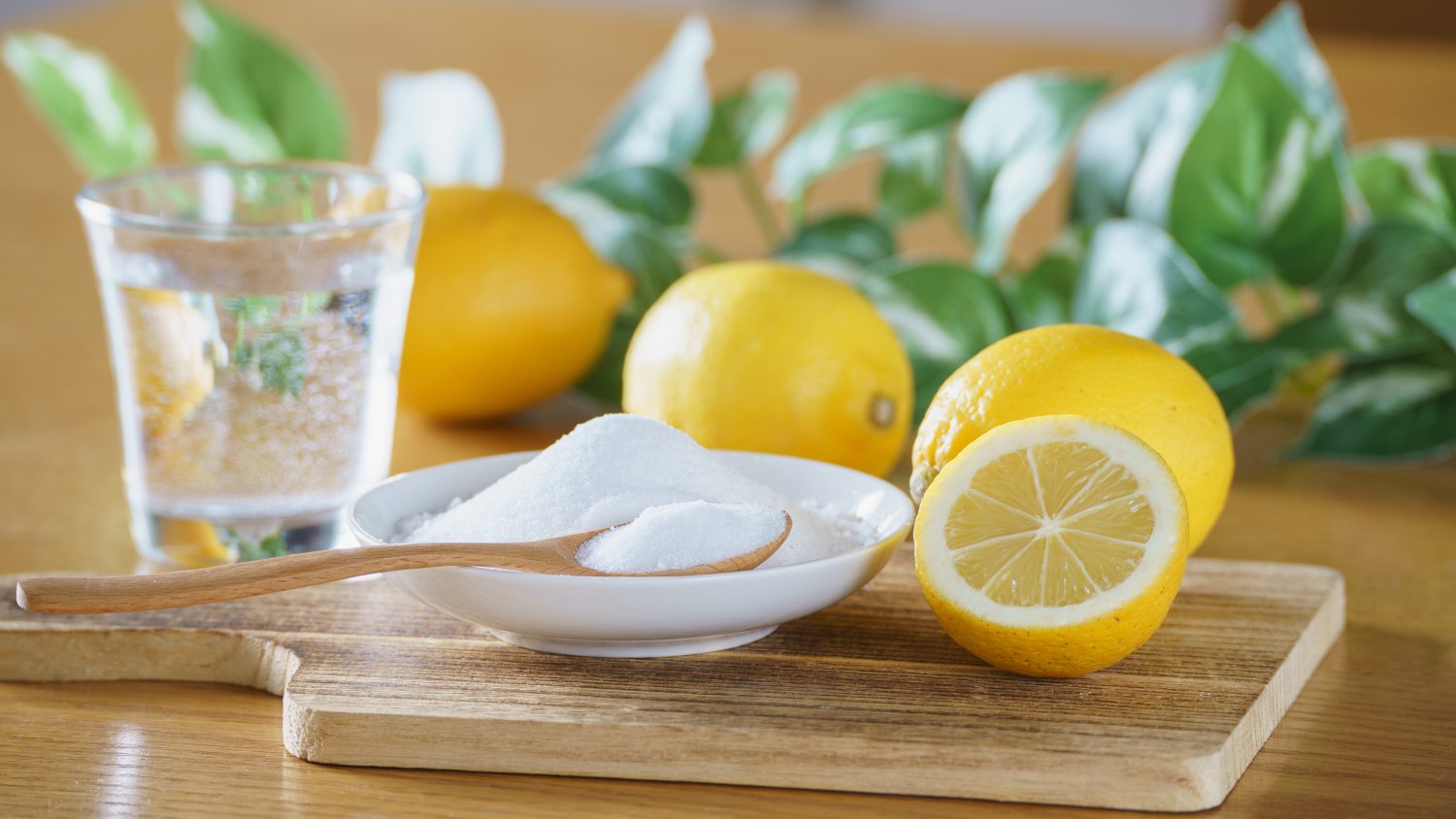Popular Products
Aronia Vida
CHF 69.00
Citric acid was first successfully isolated in 1784 by Carl Wilhelm Scheele. However, historians believe that alchemists discovered citric acid as early as the 9th century and used a different name for it. Citric acid is one of the most widespread acids in the plant world and is found as a metabolic product in almost all organisms. It accounts for between five and seven percent of pure lemon juice.


Citric acid is obtained and produced using citrus fruits. The chemical extraction takes place in the first step by adding a concentrated ammonia solution to the lemon juice. The thickened mass is then subjected to a filtration process. A few steps later, pure citric acid is obtained through the crystallisation process.
The range of applications for citric acid is extremely wide and, contrary to popular belief, is not limited to its acidity. Its predominant use as a cleaning agent is due to the formation of a so-called calcium complex. As a well-known household remedy, citric acid is a good alternative to strong-smelling vinegar-based cleaners thanks to these properties. However, the acid should not be heated in this context in order to maintain its chemical properties.
Citric acid is also suitable for descaling immersion heaters, kettles and shower heads. The acid is used in various areas of the food industry in the production of iced tea and lemonades. Thanks to its various areas of application, this colourless acid is a thoroughly useful substance in many different areas of everyday life.
In addition to food and as a little helper in the household, the acid has been an important component in industrial product manufacturing for many years and has long been indispensable.
Make sure that the place of delivery and the language correspond to your region. Otherwise, change your selection: